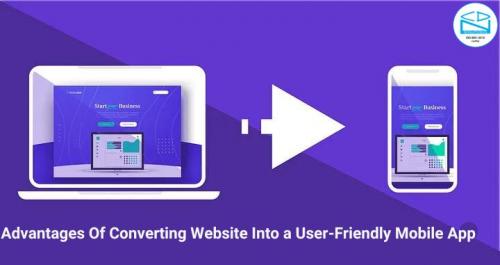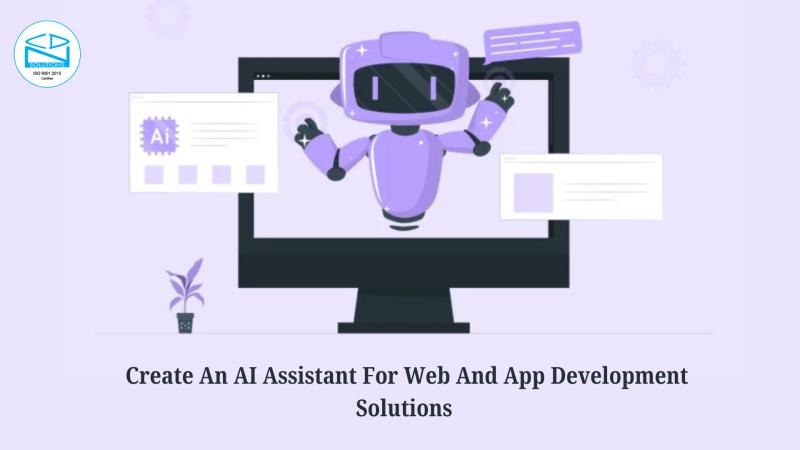Increase Your Business Opportunity By Converting Your Website into a User-Friendly Mobile App

In today's digital age, having a strong online presence is essential for businesses to thrive. With the rapid growth of mobile technology, more users are accessing the internet through their smartphones and tablets than ever before. As a result, optimizing your website for mobile devices has become imperative. However, simply having a mobile-responsive website may not be enough to provide the seamless user experience that modern consumers expect. This is where converting your website into a user-friendly mobile app can offer significant advantages.
What can your app do for business and your users
- Improved Performance and Speed
Mobile apps are specifically designed to function smoothly on smartphones and tablets, offering faster load times and better performance compared to mobile websites. By converting your website into a mobile app, you can streamline the user experience, reducing loading times and minimizing latency.
- Enhanced Personalization
Mobile apps allow for a more personalized user experience by leveraging device features such as push notifications, location services, and in-app preferences. By collecting user data and behavior patterns, mobile apps can deliver tailored content, recommendations, and promotions, ultimately driving user engagement and loyalty.
- Offline Accessibility
Unlike websites that require an active internet connection to function, mobile apps can offer offline accessibility, allowing users to access content and features even when they're not connected to the internet
- Increased Brand Visibility and Recognition
Having a dedicated mobile app can significantly boost your brand visibility and recognition in the app stores. Mobile apps are featured prominently in app marketplaces like the Apple App Store and Google Play Store, providing valuable exposure to potential users.
- Enhanced User Engagement and Retention
Mobile apps offer a more immersive and engaging user experience compared to websites, thanks to features like push notifications, interactive interfaces, and gamification elements. By sending targeted notifications, offering rewards, and fostering community interaction, mobile apps can increase user engagement and encourage repeat usage.
Major steps to convert a website into an app
1. Define Your Objectives
- Identify the purpose of converting your website into a mobile app.
- Determine the target audience and their preferences.
2. Research and Analysis
- Analyze your website's content, features, and functionality.
- Identify key elements that need to be adapted for mobile users.
- Conduct market research to understand user expectations and industry trends.
3. Choose a Development Approach
- Decide whether you want to develop a native, hybrid, or web-based mobile app.
- Native apps offer the best performance and user experience but require separate development for each platform (iOS, Android).
4. Design the User Interface
- Create wireframes and mockups for the mobile app interface.
- Ensure a user-friendly and intuitive design optimized for smaller screens.
- Adapt website elements such as navigation menus, buttons, and forms for touch interaction.
5. Develop the Mobile App
- Depending on the chosen approach, start developing the mobile app using appropriate technologies and frameworks.
- Implement features and functionalities from the website, focusing on core functionality for the initial version.
- Integrate APIs and third-party services as needed for enhanced functionality.
6. Optimize for Performance
- Optimize the mobile app for performance, including load times and responsiveness.
- Minimize unnecessary data transfers and optimize image sizes for faster loading on mobile networks.
- Test the app on various devices and network conditions to ensure smooth performance.
7. Implement Offline Functionality (If Applicable)
- If your website relies heavily on real-time data, consider implementing offline functionality in the mobile app.
- Cache essential data locally and provide users with access to previously viewed content even without an internet connection.
8. Test and Debug
- Conduct thorough testing of the mobile app across different devices, platforms, and screen sizes.
- Identify and fix any bugs, glitches, or usability issues.
- Test the app's compatibility with various operating system versions and devices.
9. Publish the App
- Prepare necessary assets such as app icons, screenshots, and descriptions for app stores.
- Register developer accounts on platforms like the Apple App Store and Google Play Store.
Conclusion
Converting your website into a mobile app involves careful planning, design, development, and optimization to create a seamless and engaging user experience for mobile users. By following these steps and leveraging the right technologies, you can successfully convert your website into a mobile app that meets the needs and expectations of your target audience while driving business growth and success. So, what are you waiting for?
Get your app now with CDN Solutions' unique and prompt services. Experience firsthand the rewards that come with a native app built professionally through our facilities.









Comments